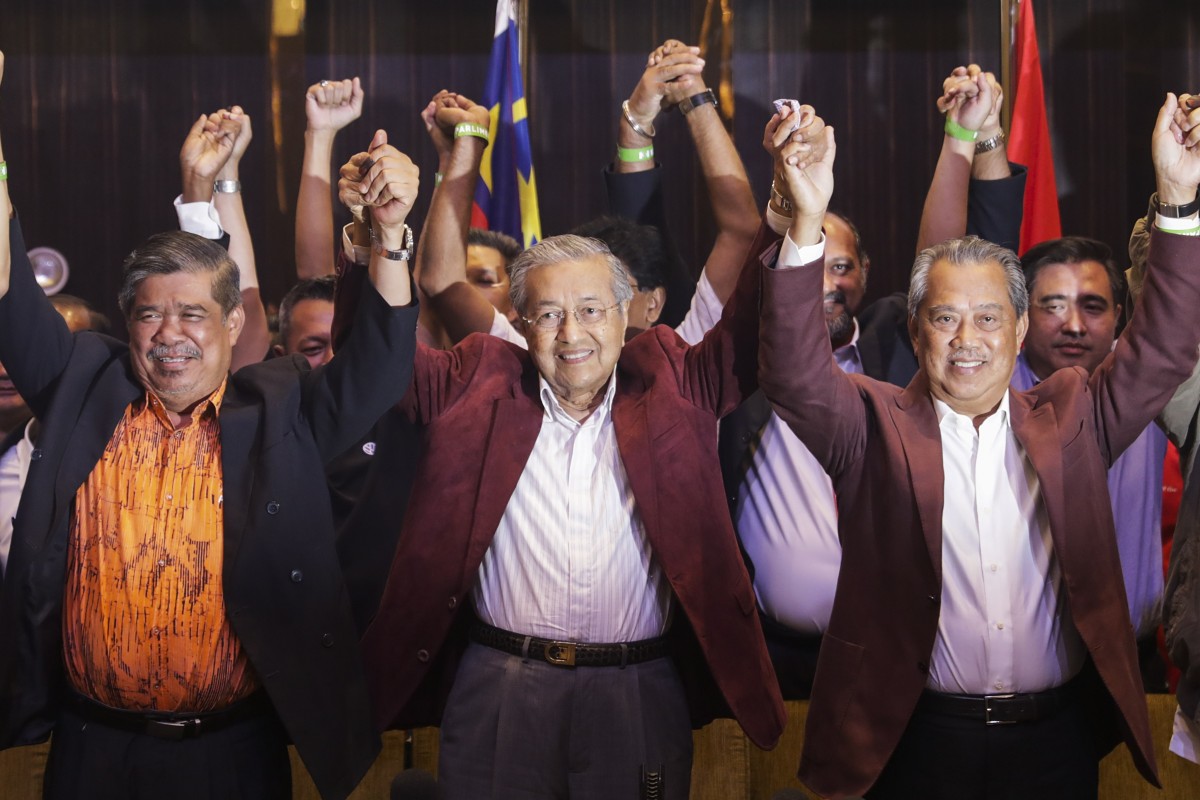First, people do not vote out of material interests alone. Many politicians tend to think that economic interest drives voters, and they thus promise infrastructure development as enticement for support from the electorate. Yet the experience of the past year shows that “man does not live by bread alone”.
For example, in the Cameron Highlands by-election in January, we saw voters in the government smallholders scheme, Felda, not voting for their current paymaster while Orang Asli (indigenous) voters kept to their traditional voting pattern of supporting the government of the day. What did they vote for? I call it political fidelity: they had a certain political commitment and kept to it. The challenge for the new ruling party today is to win the hearts and minds of the people, not just their stomachs.
Second, we cannot afford to ignore identity politics. For so long progressives shunned themes such as race, ethnicity, religion and sometimes even patriotism. As a result, the discourse on these is dominated by fundamentalists and even extremists. Here in Malaysia, such discussions are almost exclusively monopolised by the opposition Umno, an ethno-nationalist party, and PAS, an Islamist party.
By surrendering these discussions to their opponents, progressives not only fail to address critical questions arising from these important issues but are also often pushed to be on the defensive when it comes to debating them. Clearly, we have to reclaim this realm from the extremists, drawing from our rich traditions such as the Rukun Negara (national principles), the federal constitution, and our deep history of living together for centuries.

Third, the civil service is an important factor in delivering an election manifesto. While politicians and political parties fight it out in political campaigns, very often, their election manifestos are crafted without factoring in the civil service as the delivery mechanism of government. With possibly the youngest minister in the world leading my ministry, we have managed to galvanise a previously lackadaisical civil service into an enthusiastic force capable of punching above its weight.
In the past, not only were parts of the civil service highly politicised with Umno constructing a government almost indistinguishable from the party, but political masters often reduced the civil service to nothing more than mere paper shufflers, with all the real work done either outside by crony private contractors or inside by some makeshift elite unit meant to circumvent dense bureaucracy for faster delivery.
Today, through implementing good governance measures such as open tenders, discontinuing the practice of appointing party members into strategic positions, allowing the Malaysia Anti-Corruption Commission to set up a watchdog unit within the ministry and reclaiming back the work of the civil service from private contractors, the ministry manages to do a lot more work at a much lower cost. For example, through open tender, we managed to organise Le Tour de Langkawi – an annual cycling event that is internationally acclaimed – for 30 per cent less than it had cost before.
Another sports programme, FitMalaysia, was successfully organised spending only one-fifth of what was spent in the past because we decided to run the event using ministry machinery – the civil service – instead of private contractors like before. - Steven Sim,scmp
Molek Dr.M berhenti layan
budak yang disifatkan "bodoh"...
Si anak raja itu cuba hendak menunjukkan kekuasaan institusi diwarisinya serta mempamirkan kononnya raja juga berjasa kepada negara. Manakala Perdana Menteri pula cuba mempertahankan hak rakyat dalam sebuah negara demokrasi daripada diganggui oleh kekuasaan seorang raja. Itu sahaja yang menjadi motif disebalik perbalahan mereka berdua itu.
Perkara itu pun, soal batas dan kuasa di antara PM dengan raja-raja sebenarnya sudah ada dalam kitab kehidupan negara. Kenapa dipersoalkan lagi? Kalau kedua pihak menghadami perlembagaan dan adat tradisi tidak sepatut berlaku perbalahan itu.
Tetapi ego manusia tidak mudah untuk mencapai kata penyelesaian. Ego inilah yang mencelakakan keadaan dan boleh merosakkan orang lain dan negara juga.
Atau pun Mahathir ada maksud lain maka beliau terus mengusik-usik anak raja itu? Apakah ia seperti mengusik anak kucing yang kemudian mengheretnya ke dalam parti kebencian?
Rakyat tidak senang dengan apa yang berlaku. Sepatutnya Perdana Menteri tidak berhadapan dengan kerenah seperti itu. Ia sedikit sebanyak memberi gambaran yang kerajaan pimpinan Mahathir kini semacam bermasalah. Anak raja itu juga seharus sedar diri dan tahu menilai keadaan.
Mungkin Dr Mahathir seronok kerana ada "spring partner" untuk terus melakukan exercise mentalnya agar terus kuat dan dapat menjalankan tugasnya untuk membaiki negara yang dijahanamkan oleh Najib Razak.
Mungkin begitu. Dr Mahathir pernah mengakui beliau akan jadi lebih kuat, berani kalau berhadapan dengan cabaran dan ancaman. Jadi dalam hal ini saya melihat anak raja itu adalah cabaran buatnya.
Kalau ya pun untuk melakukan latihan bagi menguatkan minda demi negara, carilah pesaing lain, yang lebih cerdik. Ini kerana Dr Mahathir menyifatkan anak raja itu sebagai "budak bodoh", yang tidak tahu apa yang dia cakap. Kalau sudah tahu dia bodoh kenapa dilayan? Jangan-jangan penyakit bodoh itu sudah berjangkit kepada Mahathir? - MSO

Bom Atom "Little boy"

PM Tun Dr.M has been ranked 47th in Fortune magazine's
list of the world’s 50 greatest leaders. Geng penyanyak² saja
yang rasa Najib dan Hadi Awang sangat hebat 😂😂😂

Inilah harga yang terpaksa rakyat bayar akibat pemborosan yang
dilakukan rejim bosskurr Najib Razak dan rakan subahat setianya, Jho Low.
cheers.







No comments:
Post a Comment